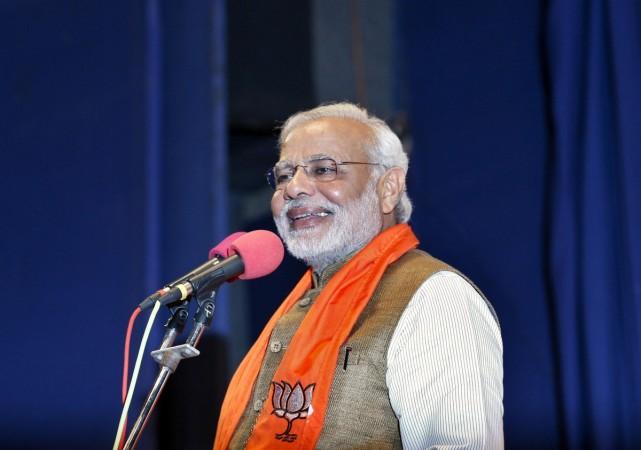
After watching the launch of the Polar Satellite Launch Vehicle (PSLV)- C23 rocket from ground zero at Sriharikota on Monday, Prime Minister Narendra Modi asked Indian scientists to now aim for a global footprint and work towards building a satellite for SAARC nations.
Attending the first space mission under his government, Modi lauded the Indian Space Research Organisation (ISRO) and heralded the launch as a "global endorsement of India's space capabilities".
"India's advanced space programme puts her in an elite group of a few countries today. We have launched about 40 satellites for 19 nations, including developed countries. This is a global endorsement of India's space capability. Our scientists have made us global leaders in one of the most complex areas of modern technology," he said.
Modi stressed on the need for a satellite that will help in the development of all the countries in South Asia.
"Today, I ask our space community to take up the challenge of developing a SAARC Satellite, that we can dedicate to our neighbourhood as a gift from India; a satellite that provides a full range of applications and services to all our neighbours," he said.
Modi had earlier reached out to leaders from the South Asian Association for Regional Cooperation during his swearing-in ceremony on May 26.
The Prime Minister made it clear that he had his eyes set on international achievements for India's space programme. "India has the potential to be the launch service provider of the world," he said, adding that India's Mars mission cost was less than that of the Hollywood film 'Gravity'. "I ask you (the scientists) to enlarge the footprint of our satellite-based navigation system to cover all of South Asia."
Stating that progress in space should be the national mission, Modi said that India must strengthen international partnership in space technology and extend its launching capabilities to heavier satellites.
Referring to his earlier statement in the Parliament, Modi said that the Indian space programme was the perfect embodiment of his vision of "Scale, Speed and Skill".
Modi, ever the endorser of technology for development, said that technology has a critical role in realizing the vision of a "digital India".
"GIS (Geographic Information Systems) technology has transformed policy planning and implementation. Space imaging enables modern management and conservation of water resources and is an invaluable asset in disaster management," he said.
Modi exemplified the accurate satellite warning that helped track Cyclone Phailin, saving hundreds of lives.
Finally, Modi urged that more youth be involved in the sector and that more universities be brought into the picture of producing space scientists.
"Let us link up with more universities and colleges to develop our future leaders in the area of space," he said. "We must involve our youth with space technology," he said, urging the youth to read space-related data made available online through the Bhuvan Space portal. "We must also make an interactive digital space museum to engage the youth. If more youth are engaged, we will get more scientists," Modi said.

















